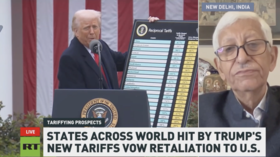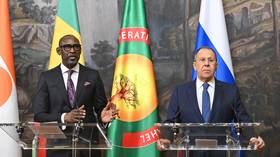Outrage at Russia’s VAT cut delay
Business leaders in Russia have reacted angrily to news that Russia will not cut the value-added tax rate until 2010. The cut will now be priced into a three year budget.
Most business representatives are unhappy about another delay.
Value-added tax, introduced in Russia in 1992, is levied on almost all goods and services imported into Russia or manufactured internally.
Originally set at 28%, the tax rate has been reduced to the current level of 18%. Its further reduction to around 10% or even its abolition has been the subject of speculation since 2005.
However, finance minister Aleksey Kudrin maintains a cut to 10% still holds too many potential risks. The proposed VAT cut will cost the state budget an estimated 2% of GDP – that's $US 34 billion.
Supporters of a cut say it will help put an end to shadow business schemes which fraudulently claim VAT rebates, thereby increasing tax revenues.
A minor VAT cut of just 1% or 2% would not have the necessary effect on the economy – says economic development minister Elvira Nabiullina. She believes this would influence the businesses motivation to invest more and innovate.
The decision to postpone the move leaves most of Russia's business disappointed.
“Clearly, a reduction in VAT would mitigate the inflationary pressures that we feel on the market due to increase in the cost of raw materials, in the cost of energy, labour, media,” said Bernard Meunier, Nestle Russia CEO.
But besides being an obstacle for business, value-added tax has long been criticised as a burden to consumers, resulting in higher prices, which is increasingly becoming a headache for both the government, and cash-strapped Russian shoppers.













